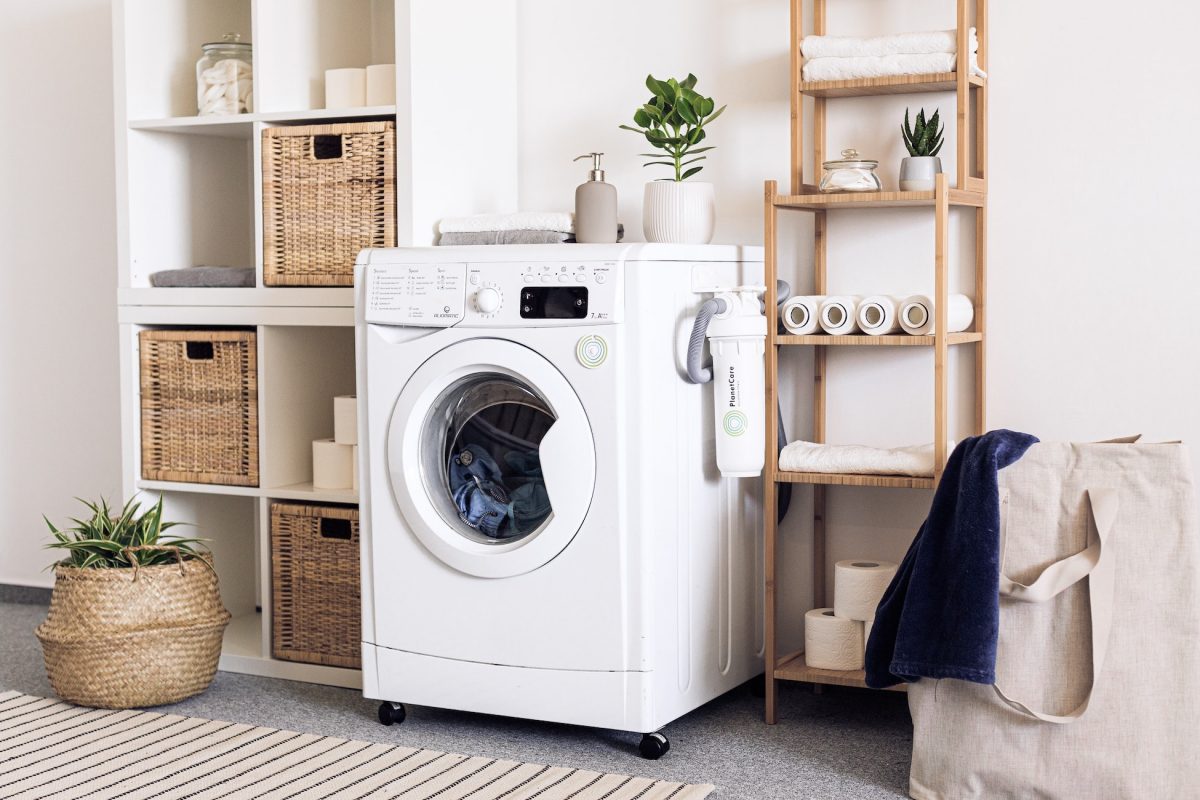Whether you’re swiping at your favorite coffee shop or clicking “buy now” on the latest gadget, the eternal debate between credit cards and debit cards can feel a bit like choosing between avocado toast and a kale smoothie—both have their perks, but which one truly fuels your financial wellbeing? In this personal finance guide, we’re diving deep into the world of plastic money with a humorous, no-nonsense approach that millennials and Gen Z can relate to. Buckle up as we explore the ins and outs of credit versus debit, reveal the secrets behind rewards and overspending, and help you master the art of financial decision-making. Get ready to level up your money game!
Credit Cards Vs Debit Cards: Personal Finance Guide Table of Contents
Credit Cards Vs Debit Cards: The Basics
The Rise and Shine of Credit Cards
The Steady Beat of Debit Cards
The Dark Side of Plastic: Risks and Pitfalls
How Credit and Debit Cards Impact Your Financial Health
Security, Fraud Protection, and Peace of Mind
Mastering Responsible Credit Card Usage
Optimizing Your Debit Card Strategy
Deciding Between Credit and Debit: Tailoring Your Financial Toolkit
Digital Wallets and the Future of Payment Methods
Best Practices for Personal Finance Management
Real-Life Stories: Winning at the Money Game
Debunking Common Myths About Cards
Resources and Community Support: Your Next Steps
Credit Cards Vs Debit Cards: The Basics
Let’s kick things off by breaking down the main protagonists of our financial saga. In one corner, we have the mighty credit card—a tool that gives you the power to borrow money up to a set limit, build credit history, and earn shiny rewards along the way. In the other, the dependable debit card—directly linked to your bank account, putting you in charge of every single dollar that leaves your wallet. Although they might look similar in your hand (or digital wallet), their functions, features, and effects on your financial health are worlds apart.
A credit card essentially works as a short term loan from your card issuer. When you make a purchase, you are borrowing funds that you promise to pay back later—ideally before interest kicks in. This mechanism not only allows you to build a credit history (if managed responsibly) but also often rewards you with points, cash back, or travel perks. Conversely, a debit card acts like an electronic version of your checking account. When you swipe, the money is deducted in real-time from your available balance, giving you direct control over your spending. This immediacy is a double-edged sword—no borrowing means no interest or debt, but it also means you need to keep a keen eye on your account balance.
In essence, if credit cards are the adrenaline junkies with a penchant for rewards and credit improvements, debit cards are the steady, budget-conscious buddies ensuring you don’t overspend. Both can be essential tools in your financial arsenal, but knowing when and how to use each can make a world of difference.
The Rise and Shine of Credit Cards
Credit cards have become synonymous with a lifestyle of convenience, rewards, and, let’s face it—sometimes a dash of financial risk when misused. For many young adults, the credit card is the gateway to building a good credit score—a vital step if you ever plan on renting an apartment, buying a car, or even landing that dream job. But there’s more than just a number behind your credit report.
Building Credit History
One of the major draws of a credit card is its ability to help you build a credit history. By paying off your balance every month, you signal to potential lenders that you’re reliable and capable of managing borrowed funds. This responsible usage is the backbone of a solid credit score, which can unlock lower interest rates for mortgages and loans down the road.
Tantalizing Rewards and Perks
Who doesn’t love free money? Many credit cards offer enticing rewards programs that let you earn points, miles, or cash back on everyday purchases. Are you a frequent traveler? There are cards that convert your spending into airline miles. Prefer dining out or streaming services? There’s likely a card with rewards perfectly tailored to your lifestyle. These perks are not just fun—they’re practical, too, often offsetting the card’s fees and making your money work for you.
Grace Periods and Purchase Protection
A little-known perk of many credit cards is the grace period, which is the window of time during which you can pay off your balance without incurring interest (assuming no previous balance rolls over). Additionally, many credit cards come with purchase protection policies, extended warranties, and even travel insurance options. These benefits can offer peace of mind that you simply won’t get with a traditional debit card.
However, the flip side is that if you miss a payment or carry a balance, interest charges can pile up faster than you can say “minimum payment due.” That’s why understanding the terms and staying disciplined is crucial when venturing into the world of credit cards.
The Steady Beat of Debit Cards
Debit cards might not have the flash and fanfare of credit cards, but they offer a level of control that many find incredibly reassuring. Since they are directly linked to your bank account, every time you make a purchase, the money vanishes from your account immediately. This real-time spending control can be a powerful ally in keeping your budget in check.
Direct Spending Power
With a debit card, you’re only using money you actually have, which sidelines the risk of accumulating debt. For many, especially those who are just starting out on their financial journeys, this can instill discipline and help prevent unsustainable spending habits.
Lower Risk of Overspending (Well, Almost)
While debit cards help curb overspending by limiting you to your existing balance, they come with their own set of challenges. For instance, the lack of a credit “safety net” means that if you accidentally swipe more than you have, you might face overdraft fees—a scenario best avoided. Moreover, with very few exceptions, debit cards do not help build your credit history.
Easy-to-Understand and Manage
The simplicity of a debit card is its most appealing quality. What you see in your bank account is what you have available. There’s no need to worry about juggling monthly payments or keeping track of interest rates. This transparency makes debit cards an ideal choice for budgeting, everyday purchases, and simply keeping an eye on your finances without the risk of plunging into debt.
In short, while debit cards might not offer the same glittering rewards as credit cards, their simplicity and system of immediate expenditure serve as powerful tools for those who prefer to keep their financial lives straightforward.
The Dark Side of Plastic: Risks and Pitfalls
No matter how awesome either option might seem, both credit and debit cards come with risks that can tip the scales if you’re not careful. Let’s take a closer look at the potential hazards of each.
Credit Card Pitfalls
Credit cards can propel you into a realm of financial freedom—or trap you in a web of high-interest debt. One of the biggest dangers is the temptation to overspend. With the allure of rewards and the ease of borrowing, it’s easy to get carried away and rack up a balance that becomes a burden over time.
Interest and fees are also a critical concern. If you carry a balance month over month, interest charges can snowball, making it difficult to pay off your principal amount. In addition, late payment fees, annual fees, and other charges can quickly add up, making your credit card a double-edged sword.
Debit Card Drawbacks
Although debit cards keep you grounded by limiting spending to what you have, they have vulnerabilities of their own. One major risk is overdraft fees. If your account balance dips below zero, your bank might hit you with hefty fees that can disrupt your budget. Moreover, while some debit cards offer fraud protection, they may not be as robust as their credit counterparts in terms of dispute resolution and liability coverage.
The immediacy of transactions with debit cards also means that if the card is lost or stolen, your available funds could be in jeopardy until the issue is resolved. This is why diligent monitoring of your account and quick reporting of any suspicious activity is paramount.
Ultimately, the key to mitigating risks with both types of cards lies in vigilance, informed decision-making, and disciplined financial habits.
How Credit and Debit Cards Impact Your Financial Health
The way you use these cards can significantly influence your broader financial landscape. Let’s break down how each type of card can either elevate your fiscal fitness or potentially trip you up.
Credit Score Building and Financial Leverage
When managed responsibly, credit cards serve as a brilliant tool for building your credit score. Timely payments, low credit utilization, and a diverse credit mix can make you an attractive candidate for future loans or rental agreements. Think of your credit card as a financial stepping stone—it helps pave the way for major purchases and improves your overall financial credibility.
However, misusing a credit card can quickly tarnish your credit history, leading to long-term financial consequences. Overspending or making late payments can lower your credit score, which may result in higher interest rates on future loans and even impact your ability to secure certain jobs.
Budgeting and Immediate Spending Oversight
For debit cards, the effect on your financial health is more immediate. Since every transaction deducts money directly from your checking account, you’re constantly reminded of your current balance. This direct link fosters disciplined budgeting—if you spend too much, you’ll know it right away. However, the lack of credit history building means that using debit exclusively might not boost your long-term financial profile.
The bottom line is that credit cards offer long-term financial leverage if used wisely, while debit cards excel at promoting immediate spending awareness. Depending on where you are in your financial journey, one might serve you better than the other—or perhaps a mix of both is the secret sauce.
Security, Fraud Protection, and Peace of Mind
In this digital age, security is paramount, and both credit and debit cards have measures in place to protect you. Still, the level of protection can differ between the two.
Fraud Protection on Credit Cards
Credit cards typically offer robust fraud protection. If unauthorized purchases occur, you’re generally not held liable beyond a small fee—often just $50 or even nothing at all if the card issuer’s policies are favorable. Many credit card companies also monitor your account for suspicious activity and provide easy-to-use mobile apps that alert you to any abnormal spending patterns.
Moreover, the dispute resolution process with credit cards is usually quicker and more forgiving, meaning that if something does go wrong, you have a safety net in place.
Security on Debit Cards
Debit cards also come with security measures, though the stakes can be a bit higher since funds are pulled directly from your account. While many banks offer zero-liability fraud policies, the resolution process might take longer, potentially affecting your day-to-day finances until your account is reimbursed. This delay can be particularly stressful if your checking account funds are critical for paying bills or meeting essential expenses.
It’s worth noting that both types of cards benefit immensely from modern security measures like two-factor authentication, tokenization, and near-field communication (NFC) for contactless payments. Staying savvy with your card’s security features and promptly monitoring your transactions can greatly minimize your risk of fraud.
Mastering Responsible Credit Card Usage
Credit cards can be a fantastic ally in your financial journey, but only if they’re managed with care. Here are some tried-and-tested tips to help you keep your credit card game on point:
- Pay in Full Each Month: Whenever possible, pay off your balance entirely before the due date. This helps you avoid interest charges and keeps your credit score in check.
- Keep an Eye on Your Statements: Regularly review your statements and online account activity to catch any errors or fraudulent charges early.
- Stay Within Your Limit: Aim to use no more than 30% of your available credit. This is a good rule of thumb for maintaining a healthy credit utilization ratio.
- Set Up Payment Reminders: Use calendar alerts or mobile apps to remind you of upcoming payments. Consistency is key!
- Know Your Terms: Familiarize yourself with your card’s interest rates, fees, and rewards policies before diving in.
By implementing these strategies, you can harness the power of credit cards to boost your financial profile while sidestepping the pitfalls of overspending and high-interest debt.
Optimizing Your Debit Card Strategy
Debit cards are a cornerstone for financial discipline. They enforce the simple yet powerful concept of “spend only what you have.” To really maximize their benefits, follow these practical tips:
- Create a Real-Time Budget: Use budgeting apps that sync directly with your bank account to keep track of your spending in real-time.
- Monitor for Overdrafts: Sign up for low-balance alerts so you know when you’re approaching your available limit and can avoid overdraft fees.
- Utilize Mobile Banking: Most banks offer robust mobile banking solutions that allow you to check your balance, review transactions, and even freeze your card if necessary.
- Automate Savings: Take advantage of automatic transfers to a savings account. This helps you build an emergency fund without even thinking about it.
- Use for Everyday Spending: Reserve your debit card for daily expenses like groceries, transport, and dining out, while keeping other accounts for long-term savings or credit-building if needed.
These strategies not only help prevent overdrafts but also promote a clearer picture of your available funds, ensuring you’re always in tune with your financial rhythm.
Deciding Between Credit and Debit: Tailoring Your Financial Toolkit
The choice between credit and debit isn’t always an “either/or” situation. In fact, many savvy spenders use a blend of both to meet different needs. Here’s how you can decide when to reach for which card:
If you’re aiming to build credit, enjoy rewards, or plan for a major purchase where a robust credit history might make or break the deal, a credit card is your go-to tool. It offers the flexibility to manage larger purchases and provides that extra layer of fraud protection—just remember to use it responsibly.
On the flip side, if your goal is to stick strictly to a budget and avoid the temptation of borrowing money, the debit card is a worthy ally. It ensures that every purchase is backed by real money, keeping you grounded in your financial reality and preventing debt spirals.
Consider your lifestyle, spending habits, and financial goals. Many young adults find success by designating one card for rewards and emergencies (usually a credit card) and another for day-to-day transactions (a debit card). This combination can create a balanced approach that leverages the best of both worlds.
Digital Wallets and the Future of Payment Methods
The way we pay is evolving, and digital wallets like Apple Pay, Google Wallet, and Samsung Pay are turning your phone into a powerhouse of transactions. Both credit and debit cards are now integrated into these digital ecosystems, merging security, convenience, and speed.
Digital wallets offer several advantages over traditional card swipes. They use tokenization to protect your sensitive information, meaning your card details aren’t directly transmitted during a purchase. This adds an extra layer of security that’s particularly appealing to tech-savvy users.
What’s more, the integration of digital wallets into everyday life means that you can seamlessly switch between credit and debit transactions on the go. Whether you’re paying for rideshares, ordering food, or shopping online, digital wallets provide a frictionless experience that complements your personal finance strategy.
Best Practices for Personal Finance Management
Managing your money isn’t just about choosing the right card; it’s about aligning your entire financial strategy with your lifestyle and goals. Here are some best practices to help you stay in control:
- Track Your Budget: Whether you use a traditional spreadsheet or the latest budgeting app, tracking your income and expenses is critical for avoiding overspending.
- Set Financial Goals: Identify short-term and long-term objectives (from month-end savings goals to planning for a big vacation) and adjust your spending accordingly.
- Create an Emergency Fund: Life is full of surprises. Having a dedicated savings buffer can protect you from unexpected expenses and financial setbacks.
- Monitor Your Credit: Regularly check your credit report and score to ensure your responsible spending is paying off—and to catch any discrepancies early.
- Educate Yourself: Read up on personal finance blogs, podcasts, and online courses. The more you understand about managing money, the better your decisions will be.
Implementing these practices into your lifestyle not only maximizes the benefits of your credit and debit cards but also sets you on a path toward lasting financial stability.
Real-Life Stories: Winning at the Money Game
Let’s bring these concepts to life with a few real-life case studies that illustrate how millennials and Gen Z have successfully harnessed the power of credit and debit cards.
Case Study 1: The Credit Card Comeback
Meet Jordan, a 26-year-old digital marketing guru who was initially wary of credit cards due to fear of debt. After attending a personal finance workshop, Jordan decided to take the plunge. By diligently paying off his monthly balance and leveraging a rewards card for everyday purchases like streaming subscriptions and online shopping, he gradually improved his credit score. Within a couple of years, Jordan was able to secure a competitive auto loan and even snagged a limited-time cash-back bonus that funded a much-deserved weekend getaway.
Case Study 2: The Debit Card Discipline
Then there’s Alex, a 23-year-old freelance designer who swore by the reliability of debit cards. Alex’s approach was simple: by linking his debit card to an intuitive budgeting app, he tracked every dollar in real time. This method not only prevented overspending but also helped him save for a down payment on a new laptop and invest in professional development courses. Alex’s disciplined use of his debit card taught him the value of living within his means while steadily building a savings cushion.
Case Study 3: The Hybrid Hero
Finally, consider Samantha, a 29-year-old entrepreneur, who discovered that a hybrid approach worked best for her dynamic lifestyle. Samantha used a rewards-rich credit card for travel and larger purchases—always paying off the balance in full—and a debit card for daily expenses. This strategic separation allowed her to build credit while also maintaining strict control over her spending, resulting in a balanced financial portfolio and a few well-earned travel perks.
These stories are a testament to the fact that there’s no one-size-fits-all strategy. Instead, it’s all about understanding how to adapt the tools at your disposal to suit your unique financial journey.
Debunking Common Myths About Cards
With so much information circulating online, it’s easy to fall prey to myths about credit and debit cards. Let’s clear up a few common misconceptions.
Myth #1: Credit Cards Are Always Bad
Reality check: Credit cards, when managed responsibly, are powerful tools for building credit and accessing rewards. The key is to avoid carrying a balance and to pay your bills on time. It’s not the card itself that’s dangerous—it’s how you use it.
Myth #2: Debit Cards Are Safer Than Credit Cards
While debit cards offer the benefit of only spending what you have, they might expose your entire bank balance if compromised. Credit cards often provide better fraud protection and have more robust dispute resolution processes.
Myth #3: You Should Only Use One Type of Card
In reality, a balanced approach is often most effective. Use credit cards to build credit and earn rewards, but rely on debit cards to keep immediate spending in check. Blending both can lead to a healthier financial future.
Dispelling these myths empowers you to make informed decisions and choose the financial tools that best suit your lifestyle.
Resources and Community Support: Your Next Steps
Becoming financially savvy doesn’t have to be a lonely endeavor. Countless resources and communities are available to guide you. Whether you’re a newbie learning the basics or a seasoned planner looking for fresh strategies, here are some steps you can take:
- Read Trusted Blogs and Books: Check out personal finance blogs, podcasts, and YouTube channels that focus on real-life financial advice geared toward millennials and Gen Z. Titles like “Your Money or Your Life” or platforms like NerdWallet and The Financial Diet are great places to start.
- Join Online Forums and Social Media Groups: Connect on Reddit, Facebook, or LinkedIn groups where like-minded individuals share their experiences, strategies, and tips on managing credit and debit cards effectively.
- Attend Workshops and Webinars: Many financial institutions and independent experts host free webinars that delve into smart credit usage, debt management, and budgeting techniques—perfect for interactive learning.
- Use Budgeting and Financial Planning Apps: Explore apps like Mint, YNAB (You Need a Budget), and Credit Karma. These tools can help you monitor your spending, track your credit score, and set savings goals right from your smartphone.
- Consult a Financial Advisor: If you need personalized advice tailored to your unique situation, don’t hesitate to seek guidance from a certified financial planner or advisor.
The financial journey can be complex, but with the right resources and community support, you’ll always have a roadmap to guide you through the winding paths of credit and debit management. Empower yourself with knowledge, ask questions, and continuously refine your strategy.
FAQs: Your Credit Cards Vs Debit Cards Questions Answered
Here are some frequently asked questions that cover a range of topics about credit cards, debit cards, and personal finance. Whether you’re curious about rewards, security, or budgeting strategies, these answers should help clear up any lingering doubts.
1. What are the main differences between credit cards and debit cards?
Credit cards allow you to borrow money up to a set limit, build credit history, and enjoy reward programs—provided you pay off your balance on time. Debit cards, on the other hand, pull funds directly from your bank account, limiting spending to your available balance and offering a simpler, debt-free approach.
2. How can credit cards help build my credit score?
By making timely payments and keeping your credit utilization low, good credit card habits boost your credit score over time, making you a more attractive candidate for future loans and financial products.
3. What should I do if I overspend using my credit card?
The key is to pay off your balance as soon as possible to avoid interest charges. If you do overspend, consider setting up a budget, contacting your issuer about payment options, and adjusting your spending habits to prevent future issues.
4. Are debit cards completely risk-free?
While debit cards limit spending to your available funds, they can expose your bank account if fraud occurs. It’s essential to monitor your account regularly and use bank alerts to minimize potential losses.
5. Which card is better for everyday spending?
It depends on your goals. Debit cards are great for keeping your spending in check by using only the money you have, while credit cards can offer rewards and build credit—if used responsibly and paid off in full each month.
6. How can I protect my cards from fraud?
Both credit and debit cards offer fraud protection, but always monitor your transactions, use secure digital wallets where available, and immediately report any suspicious activity to your bank.
7. Can I use both credit and debit cards effectively?
Absolutely! Many people find that a hybrid approach—using credit cards for rewards and emergencies while relying on debit cards for everyday spending—offers the best of both worlds.
8. What are some best practices for managing multiple cards?
Keep a budget, set up payment reminders, track your spending regularly, and use personal finance apps to manage and monitor your balances. Educate yourself on the terms and fees associated with each card.
9. Should I be concerned about annual fees on credit cards?
Not necessarily—as long as the rewards and benefits you receive exceed the cost of the fee. Many credit cards offer no-annual-fee options or waive fees if you hit certain spending thresholds.
10. How do digital wallets factor into this debate?
Digital wallets integrate both credit and debit cards, adding security and convenience to your transactions. They use tokenization to protect your information and streamline the payment process, making them an excellent complement to your overall strategy.
Your Journey to Financial Empowerment
Embracing the dual power of credit and debit cards can transform your financial life. The inherent flexibility, rewards, and security of credit cards combined with the budget discipline of debit cards offer a robust toolkit for managing your money confidently. As you navigate everyday expenses and plan for long-term goals, remember that the choices you make with your cards have a profound impact on your financial future.
With a blend of smart spending habits, continuous education, and the support of digital tools and communities, you’re well-equipped to make informed decisions that align with your personal goals. Whether you’re maximizing rewards, keeping a tight budget, or both, your commitment to managing your money with precision and humor is what truly sets you apart.
Your financial journey is uniquely yours—filled with opportunities to learn, adapt, and grow. So, take the time to understand your spending patterns, embrace new technologies, and celebrate every step you take toward financial independence. After all, the real victory lies in knowing how to use every tool at your disposal to secure a brighter, more empowered future.
Here’s to smart choices, healthy budgets, and a future where your finances work for you. The path to financial empowerment is just a swipe—or tap—away!













